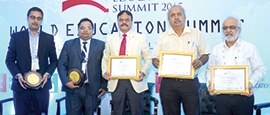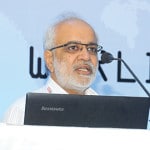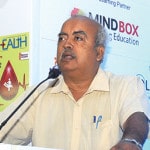
In an industry where there is a plethora of opportunities to look forward to, what is left is searching for the right candidate. It should be clear what we look in a prospective employee. An employee will provide the necessary attitude and skills if correct guidance is initiated. You give them attitude, we will teach them skills, you can’t teach a horse to climb a tree. It takes time to generate the right amount of skills. It should be harnessed during the employment.
Agar kuch nahi kar sakte toh skills karlo (If nothing works, then one should do skill education). This is what comprehended from skill learning, but it is a different picture altogether.
The National Skills Quality Framework has some key aspects: Quality of training, infrastructure assessment, adequate compensation, in short, the universe of skill development is doing fine. The current government has ensured to practice National Skills Day, for skilling the abilities.
The basic thing which an employer should keep in mind is developing the curriculum, make them understand their future of the job. Apprentice opportunities like skill slab opens the gate to teach, participate in assessment, encourages the employer to recognise the skills. But there is a gap, not much is explored yet for retiring employers. These should be used as trainers, we should hire them, pursue them or request them to train, working professionals, industry should move into hiring certified candidates.
We should make skilling aspirational for both boys and girls. Academia should set skill lab to provide simulation to the students and generate in them the real time look and feel. Academia is a far away thing for college dropouts, plenty of things needs to be done, and this is just a drop in the ocean. 70 per cent haven’t even seen college. We should not get overwhelmed by skill development, a much larger role is required.
HARSH MEHROTRA,
Head Trainings, Mahendra Skills Training & Development Pvt Ltd
|

In today’s time ensuring the right vocation to the right resource is very necessary. Today, a business magnate tells me how to teach or train teachers, where an industry expert comes and tells me, I will teach you the assessment process, how to create a curriculum. My core profession is been taken by somebody, that is the issue that needs to be taken care of. Doctors, bureaucrats and engineers acquire basic skills that are common to all professions. The university can provide them the right choice, the right market, mandatory basic human competence, professional and business combined together.
PROF MITHILESH DIXIT,
Vice Chancellor, Career Point University, Kota
|

 GURMEET SINGH DHALIWAL, Chairman, Baba Farid Group of Institutions
GURMEET SINGH DHALIWAL, Chairman, Baba Farid Group of Institutions



























